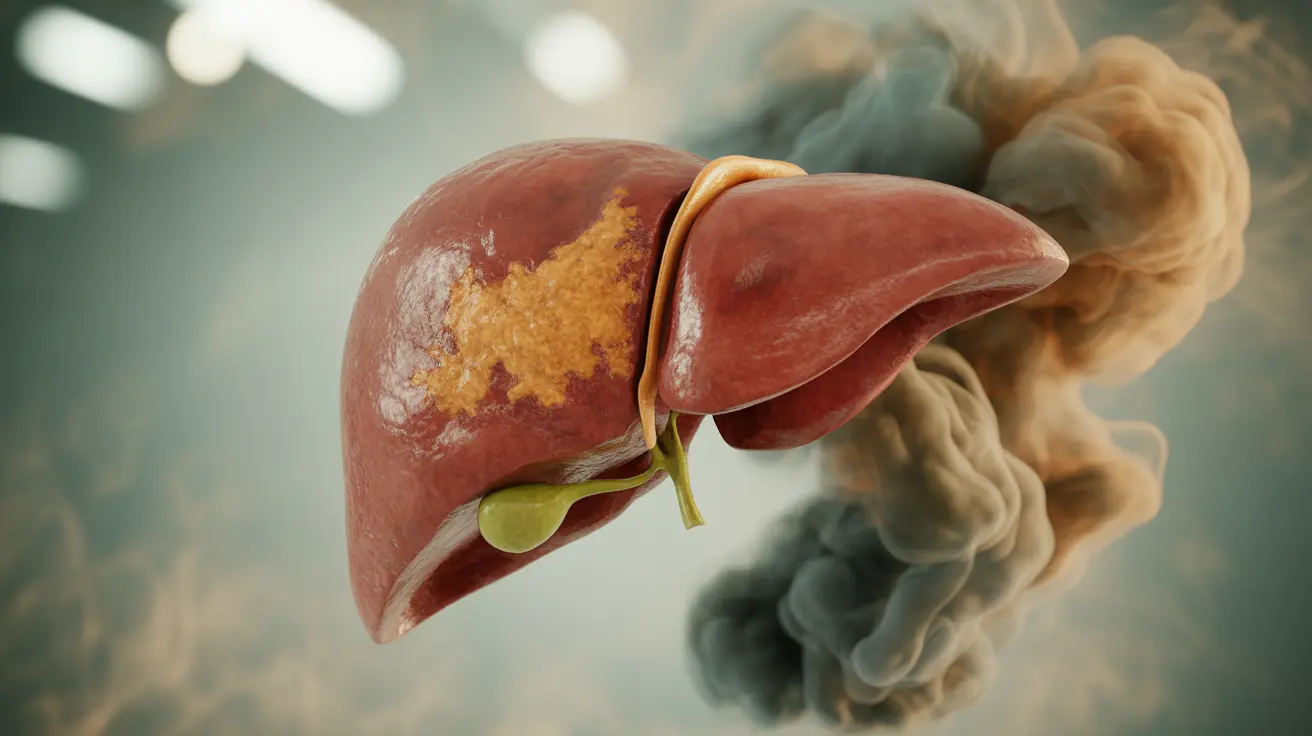Smoking cigarettes doesn't just harm your lungs - it can also have serious consequences for your liver health. The toxic chemicals in tobacco smoke can trigger inflammation, oxidative stress, and cellular damage in the liver, potentially leading to various liver conditions and complications. Understanding these effects is crucial for both smokers and healthcare providers.
This comprehensive guide explores the relationship between smoking and liver health, examining how tobacco use can impact liver function, worsen existing conditions, and increase the risk of liver disease and cancer.
How Smoking Damages the Liver
When you smoke, your liver becomes exposed to numerous harmful chemicals and toxins found in tobacco smoke. These substances can:
- Trigger inflammatory responses in liver tissue
- Cause oxidative stress and cellular damage
- Alter liver enzyme production and function
- Interfere with the liver's natural detoxification processes
- Promote the development of fibrosis
The liver must work harder to process and eliminate these toxins, which can lead to increased stress on this vital organ over time.
Impact on Liver Disease Development
Regular smoking significantly increases the risk of developing various liver conditions. Research has shown that smokers are more likely to experience:
- Non-alcoholic fatty liver disease (NAFLD)
- Liver fibrosis and cirrhosis
- Primary biliary cholangitis
- Increased liver inflammation
- Elevated liver enzyme levels
The combination of smoking with other risk factors, such as alcohol consumption or obesity, can multiply the negative effects on liver health.
Smoking and Liver Cancer Risk
Studies have demonstrated a clear link between smoking and an increased risk of hepatocellular carcinoma (HCC), the most common type of primary liver cancer. Tobacco smoke contains numerous carcinogens that can:
- Directly damage liver DNA
- Promote tumor formation
- Accelerate cancer cell growth
- Increase the likelihood of metastasis
Effects on Existing Liver Conditions
For individuals with pre-existing liver conditions, smoking can significantly worsen their prognosis. Smoking has been shown to:
- Accelerate the progression of viral hepatitis
- Increase inflammation in fatty liver disease
- Reduce the effectiveness of liver disease treatments
- Complicate recovery from liver surgery or transplantation
Liver Function and Enzyme Changes
Regular smoking can alter liver enzyme levels and affect overall liver function. Common changes include:
- Elevated ALT (alanine aminotransferase) levels
- Increased AST (aspartate aminotransferase)
- Higher GGT (gamma-glutamyl transferase)
- Altered bilirubin metabolism
Benefits of Quitting Smoking for Liver Health
The good news is that quitting smoking can help improve liver health and reduce disease progression. Benefits of cessation include:
- Decreased inflammation levels
- Improved liver enzyme profiles
- Reduced oxidative stress
- Better treatment outcomes for existing liver conditions
- Lower risk of liver cancer development
Frequently Asked Questions
- How does smoking cigarette tobacco affect liver health and increase the risk of liver disease?
Smoking introduces numerous toxins into the body that cause inflammation and oxidative stress in the liver. These substances can damage liver cells, alter enzyme production, and increase the risk of various liver diseases, including fatty liver disease and cirrhosis.
- Can smoking make existing liver conditions like fatty liver disease or hepatitis worse?
Yes, smoking can significantly worsen existing liver conditions. It accelerates the progression of viral hepatitis, increases inflammation in fatty liver disease, and can reduce the effectiveness of treatments for liver conditions.
- Is smoking linked to a higher chance of developing liver cancer, and how does it contribute to this risk?
Smoking is directly linked to an increased risk of liver cancer, particularly hepatocellular carcinoma. The carcinogens in tobacco smoke can damage liver cell DNA, promote tumor formation, and accelerate cancer cell growth.
- What happens to liver function and liver enzyme levels when a person smokes regularly?
Regular smoking can elevate liver enzymes such as ALT, AST, and GGT, indicating liver stress or damage. It can also impair the liver's ability to process and eliminate toxins effectively.
- Does quitting smoking improve liver health and reduce the progression of liver damage or cancer risk?
Yes, quitting smoking can significantly improve liver health. It reduces inflammation, improves liver enzyme profiles, decreases oxidative stress, and can slow or halt the progression of liver damage. It also lowers the risk of developing liver cancer.




